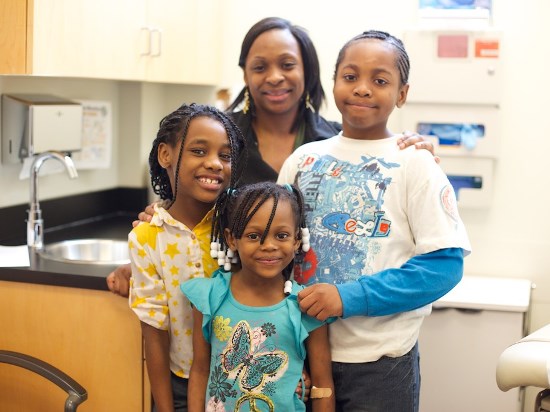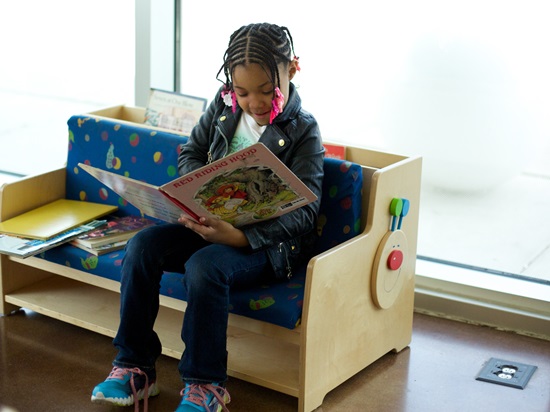Managing Stress and Coping with Coronavirus (COVID-19)

As information related to COVID-19 continues to develop, it is normal to experience many different thoughts, feelings and reactions. Everyone reacts differently to stressful situations. How you respond to the outbreak can depend on your background, the things that make you different from other people, and the community you live in. Outlined below are informational resources and advice on how to manage your concerns.
Common Reactions:
You and your loved ones may experience a wide range of emotions. It is common to experience:
- Anxiety, worry, stress
- Anger
- Feelings of sadness, helplessness, or hopelessness
- Social withdrawal
- Trouble concentrating
- Trouble initiating or maintaining sleep, or sleeping too much
- Anxiety/obsessions about your health, body and hygiene
- Fear and worry about your own health and the health of your loved ones
- Worsening of chronic health problems
Managing Concerns and Stress
Taking care of yourself, your friends, and your family can help you cope with stress. Helping others cope with their stress can also make your community stronger. Here are some helpful ways to manage your reactions and concerns:
- Get the facts: stay informed with accurate, up-to-date information from reliable sources including:
- Keep things in perspective:
- Remember to take a break from watching the news and shift focus to things that are positive in your life.
- Engage in an enjoyable or creative outlet.
- Make a gratitude list.
- Return to your values:
- Ask yourself: what’s most important to me or my family that can help us cope (pet, spirituality, loved one, friends, etc.)?
- Harness your worry:
- Don’t linger on the worst case scenario, focus on what you can do or a helpful distraction.
- Set limitations around the amount of news you read/listen to.
- Check your emotional temperature:
- Ask yourself: what do I need right now? What emotions am I experiencing?
- It may be helpful to write, draw, or journal about your emotions
- It may mean you need to take a deep breath, drink water, lay down, take a walk, meditate, or talk to someone. This is something you can do!
- Speed up your relaxation!
- Relax by practicing controlled breathing, being physically active at home, and engaging in enjoyable activities (board games, puzzles, art, etc.).
- Note - because relaxation in the face of stress is not our normal reaction in a crisis it is very important to make scheduled and purposeful effort to find your peace
- For a very short video on breathing techniques, see: https://www.youtube.com/watch?v=UB3tSaiEbNY
- Be mindful of your assumptions about others:
- To prevent stigma and discrimination, use only the guidance outlined by reliable sources.
- Avoid making determinations of risk based on race or country of origin – these are not reliable in accurately determining risk.
- Stay physically healthy: practice good hand-washing and basic hygiene.
- Avoid touching your eyes, nose and mouth.
- Avoid contact with others who are sick. If you are sick, stay home..
- Eat balanced meals—include fruits, vegetables, and plenty of water!
- Exercise if you’re healthy
- Get 8 hours of sleep per night.
- Keep connected:
- Socially distant does not mean socially isolated
- Keeping in contact with friends and family via phone or video chat can help maintain a sense of normalcy and well-being.
- Social supports provide valuable outlets for you to relieve stress through sharing feelings, and they serve as a healthy distraction.
- If you are using social media, make an effort to follow accounts that are positive, uplifting, affirmative, and make you laugh and smile!
If you are feeling overwhelmed with anxiety or other emotions, we recommend seeking professional support. PCC is here for you.
- You can call or ask your provider to speak with a Behavioral Health Provider at PCC.
- If you are seeking treatment for a substance use problem or addiction, please contact PCC's Chemical Dependency Clinic at 708-406-3929.
- Illinois Warm Line: Call (866) 359-7953 Monday-Friday from 8am-5pm. The IL Warm Line provides free mental/emotional support via telephone. Interpreter Services are available.
- "Call4Calm:" The Illinois Department of Human Services' Mental Health Division has launched a free-of-charge emotional support line for residents experiencing stress and mental health issues related to COVID-19:
- Individuals who would like to speak with a mental health professional can text "TALK" to 552020, or for Spanish, text "HABLAR" to 552020.
- Call4Calm is free to use, and individuals will remain anonymous.
- Once a resident sends a text to the hotline, within 24 hours, they will receive a call from a counselor employed by a local community mental health center to provide support.
- Individuals can also text 552020, with keywords such as "unemployment" or "food" or "shelter" and will receive information on how to navigate and access supports and services.
If you, or someone you care about, are feeling overwhelmed and like you want to harm yourselves or others, call 911
- Riveredge Hospital Psychiatric Crisis Intake and Assessment: (708) 209-4181
- National Suicide Prevention Hotline: 1-800-273-8255
- Crisis Text Line: Text HOME to 741741 to connect with a trained Crisis Counselor
- SAMHSA Disaster Distress Hotline: Call 1-800-985-5990 or text TalkWithUs to 66746 to connect with a trained crisis counselor
Support for Domestic or Intimate Partner Violence and Human Trafficking Victims:
- If you are seeking transportation and other services to flee a violent situation, contact the IL Domestic Violence Hotline which is available 24/7 by calling the number below. Operators can deploy a driver from either Lyft or Uber to the location to pick up the rider and transport them to a new location of their choosing. The system will work to pair the caller with the closest driver in the area, and the caller's privacy will be protected by personnel at the Hotline.
- Illinois Domestic Violence Hotline: call or text 24/7 (877) 863-6338
- Sarah's Inn Intimate Partner Violence 24-Hour Crisis Line: Call 708-386-4225 OR Text 708-792-3120
Resources for supporting ourselves, children, and families during pandemics:
COVID-19 Specific information for Children and Families:
- Resource: PBS kids resource list for Coronavirus. - Discussion for parents with links to free PBS video content on proper hand washing and sneeze techniques and rest
- Podcast: But Why? Podcast for curious kids - Episode "Coronavirus For Kids, And The Science Of Soap"
- Podcast: Brains On. Many episodes on Coronavirus.
- List of free activities to do at home with kids!
- Reading: check out your local library’s website to access reading material through apps and downloads!
COVID-19 Coping tools and worksheets for Adults:
- Therapist Aid:
- Anxiety: https://www.therapistaid.com/worksheets/coping-skills-anxiety.pdf
- Grounding Techniques: https://www.therapistaid.com/worksheets/grounding-techniques.pdf
- Deep Breathing: https://www.therapistaid.com/worksheets/deep-breathing-worksheet.pdf
- Mindfulness Meditation: https://www.therapistaid.com/worksheets/how-to-practice-mindfulness-meditation.pdf
- Psychology Tools:
- Living with worry and anxiety amidst global uncertainty: https://www.psychologytools.com/assets/covid-19/guide_to_living_with_worry_and_anxiety_amidst_global_uncertainty_en-us.pdf
- “Relax in a Hurry”: http://www.mbmi.org/basics/mstress_RIAH.asp
- The Corona Virus Sanity Guide: https://www.tenpercent.com/coronavirussanityguide
Technology Tools:
- Phone Apps for Adults: Breathe2Relax, MindShift, Clear Fear, Journey, Super Better, What’s Up
- Phone Apps for Children:
- Breathe Think Do. Help a Sesame Street monster calm down and solve everyday problems in this interactive game. (Free)
- Ninjafocus. Meditation scripts. Yoga poses. Mindfulness activities. Sleep music. Bedtime Stories. (Offering all content free for 90 days due to closed schools)
- Children's Meditations. Meditations for focus, relaxation, and sleep. (6 free scripts with option for in app purchases of additional content)
